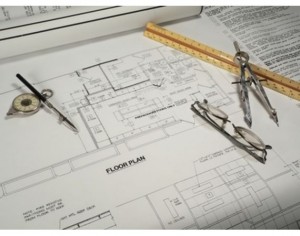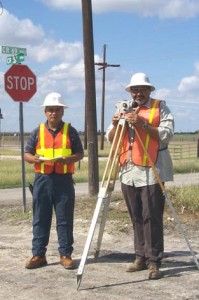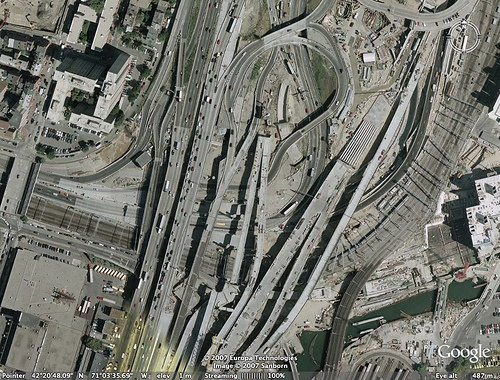Welcome to Braking News, my blog for CE 341. This will be updated throughout the semester with all sorts of transportation related things. Since this is a transportation engineering blog, I figured that it would be good to start out by talking about what engineering, civil engineering, and transportation engineering are.
What is engineering?
 The dictionary tells us that engineering is “The branch of science and technology concerned with the design, building, and use of engines, machines, and structures”. While this definition might be satisfactory to some, there is much more to engineering than one simple sentence can describe. This brief definition leaves out one of the most critical parts of engineering in my opinion; problem solving. Sure engineers design, build, and use all sorts of things, but we also spend a huge about of time troubleshooting the things that are already built that don’t work right, or that could be improved. We look to improve the usability, efficiency, and sustainability of things that do work right, but could be better. Engineers also analyze the impact of our work on other engineered items, on the general population, and on our world. Additionally, the dictionary’s definition of what engineers design, build, and use is totally oversimplified. In fact, I don’t think it would be a stretch to say that engineering is involved in the design, construction, and use of everything. If an engineer hasn’t been involved in the creation of a certain product or item, chances are it isn’t going to work the way it is intended. Engineering is a discipline that can be found everywhere, and drastically impacts our lives every day.
The dictionary tells us that engineering is “The branch of science and technology concerned with the design, building, and use of engines, machines, and structures”. While this definition might be satisfactory to some, there is much more to engineering than one simple sentence can describe. This brief definition leaves out one of the most critical parts of engineering in my opinion; problem solving. Sure engineers design, build, and use all sorts of things, but we also spend a huge about of time troubleshooting the things that are already built that don’t work right, or that could be improved. We look to improve the usability, efficiency, and sustainability of things that do work right, but could be better. Engineers also analyze the impact of our work on other engineered items, on the general population, and on our world. Additionally, the dictionary’s definition of what engineers design, build, and use is totally oversimplified. In fact, I don’t think it would be a stretch to say that engineering is involved in the design, construction, and use of everything. If an engineer hasn’t been involved in the creation of a certain product or item, chances are it isn’t going to work the way it is intended. Engineering is a discipline that can be found everywhere, and drastically impacts our lives every day.
What is civil engineering?
 Civil engineering is a subset within engineering that deals primarily with infrastructure. This includes roads, bridges, buildings, utilities, railways, ports, tunnels, and much more. The name, civil engineering, comes from the early separation between engineering for the military, and engineering for civilians. Almost everything that civilians use each day, the infrastructure that is critical to our society as we know it is the responsibility of civil engineers. We also focus a great deal on managing the use of the systems that we build, from traffic control to water resource management. Civil engineers work to ensure not only that the systems that our population requires are in place, but also that they are functioning as intended and in an efficient manner. Civil engineering has a number of sub disciplines that focus on specific areas of the civil engineering field. Each sub discipline plays an important role in the overall field of civil engineering.
Civil engineering is a subset within engineering that deals primarily with infrastructure. This includes roads, bridges, buildings, utilities, railways, ports, tunnels, and much more. The name, civil engineering, comes from the early separation between engineering for the military, and engineering for civilians. Almost everything that civilians use each day, the infrastructure that is critical to our society as we know it is the responsibility of civil engineers. We also focus a great deal on managing the use of the systems that we build, from traffic control to water resource management. Civil engineers work to ensure not only that the systems that our population requires are in place, but also that they are functioning as intended and in an efficient manner. Civil engineering has a number of sub disciplines that focus on specific areas of the civil engineering field. Each sub discipline plays an important role in the overall field of civil engineering.
What is transportation engineering?
Transportation engineering is the study and planning of transportation systems. Transportation engineers analyze the transportation needs of a specific population, and design and construct the system that is most appropriate for that population. They also analyze existing built systems to enhance their efficiency and maintain their usability. Airports, roads, rail lines, ports, and all the machines that use these facilities are all the concern of transportation engineers. Additionally, transportation engineers study and design systems concerned with active transportation, which includes more basic forms of transportation such as walking or biking. Transportation engineers must work with a range of other engineering disciplines in order to create effective and efficient transportation systems that can be used by the population they are designed for. Transportation engineers must also work with policymakers to gain public approval for most, if not all projects that they typically undertake.

